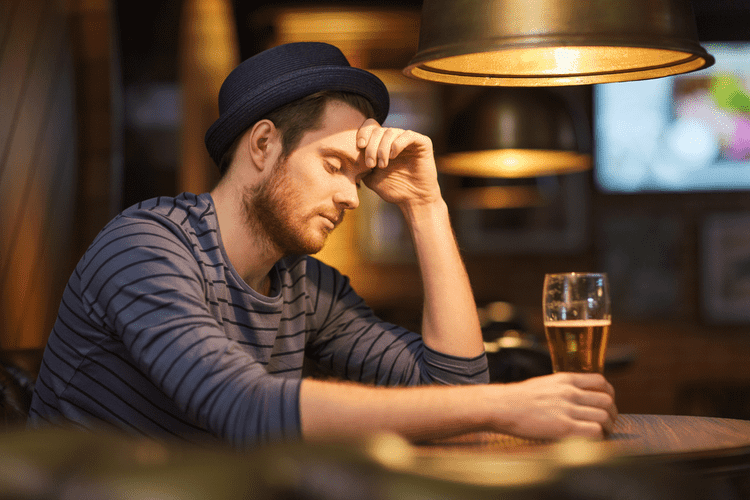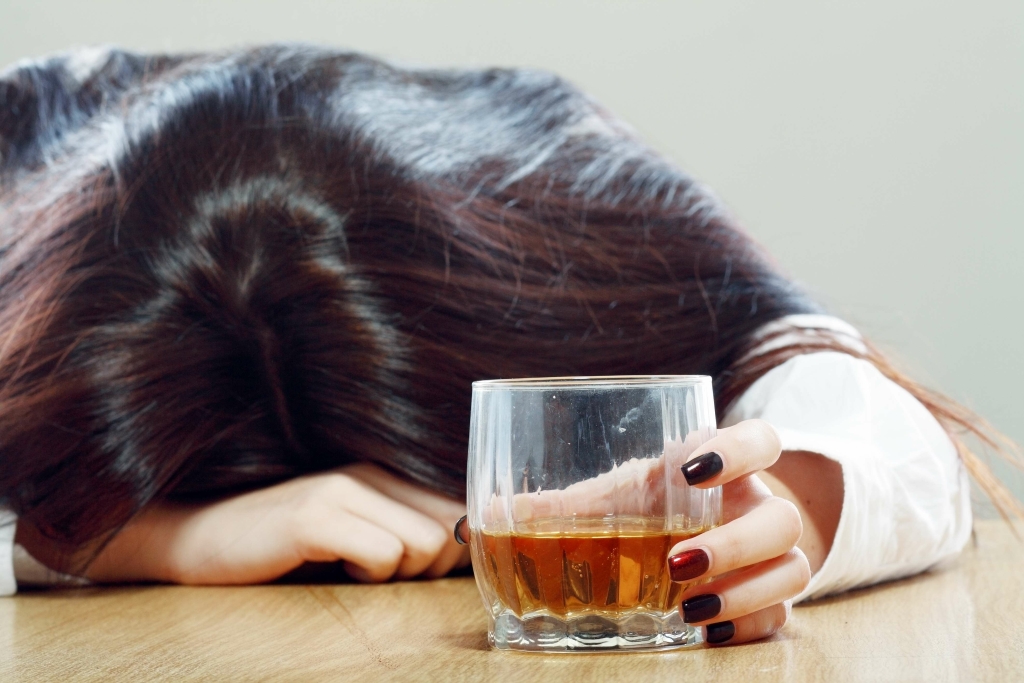Alcohol detox involves safely removing alcohol from your system, managing withdrawal, setting goals, and building support for a successful recovery process. Here at Castle Craig, our evidence-based treatment program for alcohol addiction has helped over 10,000 people beat their addiction and find control in their lives once again. It depends on how long it takes your body to metabolise the alcohol, which depends on all sorts of variables including your sex, weight, whether you ate first, how much you drank and so on.
Hot To Get Rid of Hot Flashes After Drinking Alcohol
When you consume a lot of alcohol, your body struggles to break it down efficiently, and some leftover ethanol ends up in your sweat and urine. People with alcohol intolerance lack the enzyme, Aldehyde dehydrogenase (ALDH2), which people use to digest alcohol. This is why some people wake up and immediately drink alcohol (the hair of the dog) to manage a bad hangover. If you’ve come home after a night of binge drinking and start sweating in your sleep, this can be attributed to any of the causes of sweating while drinking.
- Alcohol consumption has also been linked to depression, paranoia, and sleep disorders; AWS provides resources for managing these mental health conditions as well.
- All alcoholic beverages are capable of causing night sweats, including beer.
- When we consume alcohol, it affects the hypothalamus, a region in the brain responsible for regulating body temperature.
- This solution is particularly effective in treating Hyperhidrosis, a condition characterized by excessive sweating on certain parts of the body such as hands, feet, and armpits.
What causes alcohol-induced body odor?

Excessive sweating can also be a symptom of other medical conditions, such as overactive thyroid (hyperthyroidism), low blood sugar (hypoglycemia), and certain infections. If you experience persistent or severe sweating, it’s essential to consult with a healthcare professional to determine the underlying cause. For example, alcohol can increase the production of the stress hormone cortisol, which can disrupt our sleep and lead to night sweats.
Before drinking, make sure to have a meal that is full of protein and healthy fats. This will help slow down the absorption of alcohol into your system, giving your body more time to process it. You should also stay hydrated by alternating between alcoholic and non-alcoholic beverages throughout the night. Additionally, avoid drinking in cold weather as much as possible, since it can be easy to lose track of how much you’re drinking when you don’t feel the effects right away. Furthermore, persistent night sweats, even when not directly related to alcohol consumption, can sometimes be a symptom of underlying health conditions.
Cocaine Detox: Understanding Cocaine Withdrawal
Discover the need for drug addicts recovery, from overcoming challenges to embracing healthier lifestyles. Discover the different types of psychotherapy and their benefits to understand and improve mental health. Discover what is Suboxone, its uses in treating opioid addiction, side effects, and how it compares to other treatments. To find affordable care, explore insurance options, government programs, and financial assistance. Methamphetamine has a strong, chemical smell, often compared to ammonia, cat urine, or vinegar, with factors like purity and environment affecting it.

If you find yourself looking for “inpatient drug rehab in Atlanta,” West Georgia Wellness Center stands ready to help you navigate alcohol misuse. Professional rehabilitation often involves medically managed detox, therapy to unpack deeper motivations, and post-treatment support to guard against relapse. For some, especially those who’ve been heavy drinkers for a while, stopping cold turkey can have dangerous effects.
Tulsi Sleep Tea: A Natural Solution for Better Rest and…
He promptly replied that it’s quite common as it’s an aftereffect of alcohol. Too much alcohol intake can increase the body temperature, leading to vasodilation and sweating, which are the body’s means of maintaining optimal temperature. When the core temperature rises, the blood vessels enlarge to allow more blood flow to the surface of the body, thus releasing heat.
Dr. Mieses Malchuk says you should also pay attention to how alcohol can interact with your medications and supplements. If you take your usual medication after a night out and suddenly feel ill or in pain, get medical attention immediately. Not to be too obvious, but if you don’t want these side effects of drinking, you’re best off limiting the amount you drink. A night out can cause all sorts of wild things to happen — besides just drunk texting your ex. Here are nine weird things that happen to your body after a night of drinking. Discover the life-changing benefits of rehab centers in PA, your key to lasting recovery from addiction.
Continue reading to why does alcohol make you hot find out why does alcohol cause night sweats and what you can do for long-lasting relief once and for all. The first step in cutting back or quitting alcohol is to set clear goals and make a plan. This might involve setting limits on the amount and frequency of alcohol you consume, or it could mean committing to abstaining from alcohol altogether. For example, instead of saying «I want to drink less,» you might set a goal to only have one drink per day, or to go alcohol-free for a month. If we heed the warning signs early on, we can prevent this issue from persisting or leading to other health challenges. For one week, write down on every occasion you have a drink and how much you have.
- You might also consider drinks that help replenish electrolytes, but be cautious with sugary sports drinks as they can potentially worsen dehydration.
- This might involve setting limits on the amount and frequency of alcohol you consume, or it could mean committing to abstaining from alcohol altogether.
- You probably don’t think of being sweaty as a good thing, but it serves an important function.
- Most people tend to feel warm and flushed after consuming alcohol; however, their body temperature drops significantly as the blood shifts from the core to the skin because of the widened blood vessels.
Alcohol detox and rehabilitation programs offer proven paths to recovery, providing the support and resources needed to overcome addiction and reclaim your life. With comprehensive treatment, you can break alcohol’s grip – freeing yourself from its damaging physical and psychological effects. Regaining your health allows you to rebuild your life, free from addiction’s chains.
- Altogether, excessive sweating leads to a lot of undesirable physical sensations.
- Staying well-hydrated can help regulate body temperature, potentially reducing the intensity of alcohol-induced sweating.
- Sweating due to dehydration or over-consumption of alcohol can be easily remedied by consuming more water and cutting down on how much alcohol you consume in one session.
- When the substance is abruptly stopped, it takes a while for the body to readjust.
Addiction Treatment Programs
There are numerous reasons why you may experience night sweats, such as going alcoholism through menopause, having low blood sugar, or even suffering with a fever. In addition, certain medications, including antidepressants and steroids, can also cause night sweats. If you’re waking up in the middle of the night covered in sweat, you’ve experienced night sweats.
Advice On Consuming Too Much Alcohol
Removal of alcohol causes the https://www.diskoros.com.au/kudzu-and-alcohol-is-it-effective-or-dangerous/ disappearance of these inhibitory influences and results in an increase in excitatory neurotransmitters like glutamate. The abnormal levels of this neurochemical cause excessive neural activity, resulting in anxiety. Anxiety resulting from alcohol withdrawal could be mild or extremely bad, depending on whether it is a normal unease or a panic attack. Furthermore, pre-existing variables, such as an individual’s vulnerability to anxiety disorders and the duration and intensity of alcohol drinking, also add to this symptom. Alcohol withdrawal denotes a series of symptoms that take place when someone accustomed to heavy and daily alcohol drinking suddenly reduces or stops consuming alcohol. When the substance is abruptly stopped, it takes a while for the body to readjust.